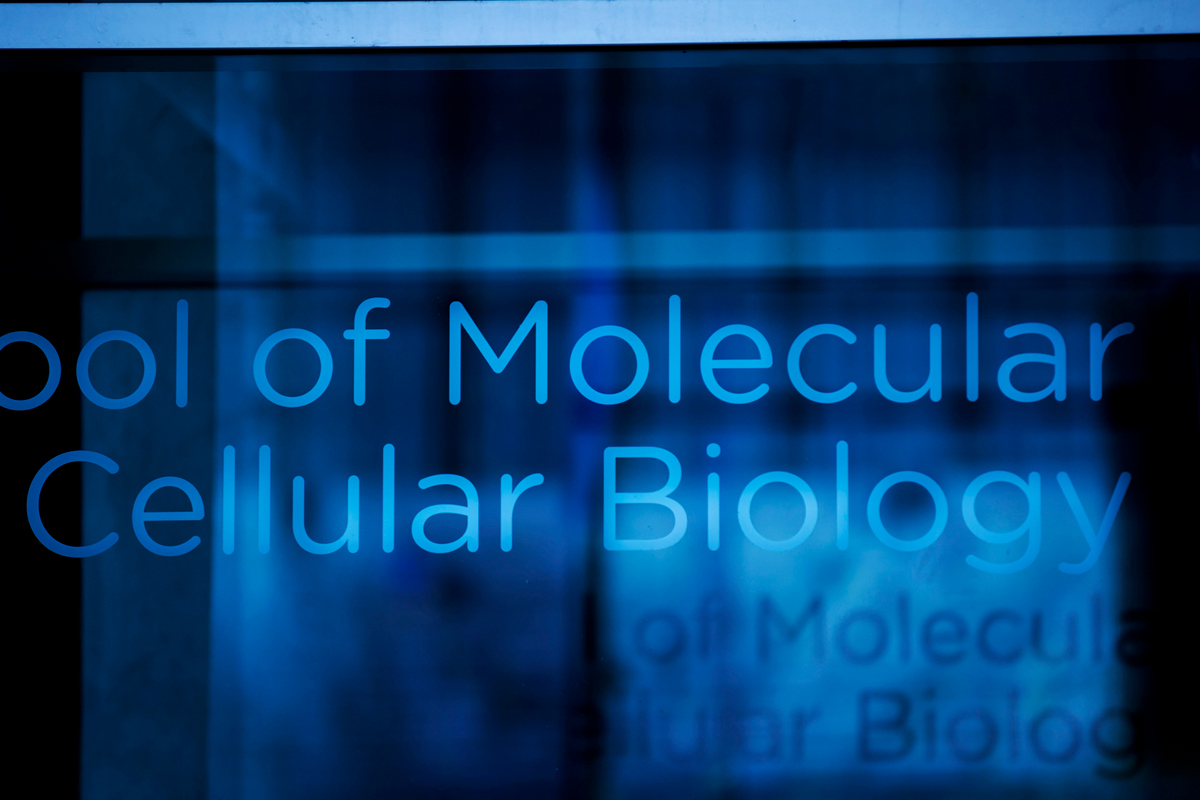Molecular & Cellular Biology
Molecular and Cellular Biology (MCB) is the study of living organisms through the understanding of basic molecular and cellular structure and function as well as the metabolic, genetic and physiological processes common to all organisms. The MCB major offers courses taught by faculty and instructors in the School of MCB, which is comprised of the departments of biochemistry, cell and developmental biology, microbiology, and molecular and integrative physiology. MCB courses explore both common and unique aspects of living organisms; how cells are organized to carry out functions that enable them to grow and replicate; how cells and organisms respond to each other and their environment; how cells communicate signals and regulate gene expression; and how these processes go awry during injury, infection or genetic diseases. The MCB curriculum imparts not only basic principles of modern biology, but also fundamental analytical, critical-thinking, and communication skills necessary for a successful scientific career
Those interested in conservation biology or the evolution of disease, for example, will find a good match in Integrative Biology, while those interested in the detailed workings of the human immune system or structure-function relationships in proteins will likely find more relevant courses in Molecular & Cellular Biology. Students should note which aspects of biology interest them as they take the shared introductory courses to distinguish which option will be the best fit.
Molecular & Cellular Biology is focused on the fundamental structures, functions and mechanisms of living organisms. The MCB major provides students with a solid foundation in areas that include molecular genetics, microbiology, cell biology, developmental biology, biochemistry, physiology, and structural biology.
Integrative Biology seeks to discover the complex interrelationships between organisms and the physical and biological environment in which they live. The IB major provides students with a solid foundation in areas that include anatomy, behavior, ecology, evolution, genetics, genomics and physiology.
- MCB 150—Molecular and Cellular Basis of Life
Students should consult with an academic advisor regarding course selection prior to the advanced registration period.
MCB is designed to prepare students for a wide spectrum of career opportunities including medicine, dentistry, pharmacy, research scientist, biotechnology and pharmaceuticals, genetic counseling, forensic science, bioinformatics and computational biology, and graduate school training.
- Analytical & quantitative abilities
- Biology theory & practical knowledge
- Curiosity and creativity
- Experimental Design
- Ability to work as part of a team (or Teamwork)
- Information handling & organization
- Innovative talents
- Interpretation of scientific literature
- Operate scientific equipment
- Oral & written communication
- Problem solving
- Statistical awareness
- Collaboration
- Technical skills
- Biological Consultant
- Biological Photographer
- Biological or Medical Illustrator
- Cell Culture Operator
- Crime Lab Technician
- Cytotechnologist
- Dentist
- Doctor
- Emergency Medical Technician
- Food and Drug Inspector
- Forensic Scientist
- Genetic Counselor
- Industrial Hygienist
- Laboratory Technician
- Lawyer
- Meat and Poultry Food Inspector
- Medical Records Administrator
- Medical Technologist
- Medical Writer
- Museum Educational Staff Member
- Pathologist
- Pharmacist
- Physician's Assistant
- Professor
- Prosthesis-Maker
- Public Relations
- Radiology Technician
- Sales Representative
- Science Librarian
- Teacher
- University Research Assistant
- Water Quality Controller
- Veterinarian
Some careers may require education beyond an undergraduate degree.
- Participating in Undergraduate Research in MCB
- Applying for a study abroad experience
- Utilizing resources of The Career Center
- Joining a Registered Student Organization (RSO) related to this major
There are several professional organizations dedicated to Molecular and Cellular Biology. Their websites might be able to provide a glimpse in the world of Molecular and Cellular Biology. These organizations include American Association for the Advancement of Science, American Institute of Biological Sciences, American Society for Cell Biology, American Society for Biochemistry and Molecular Biology, American Physiological Society Society for Neuroscience, and American Society for Microbiology.


